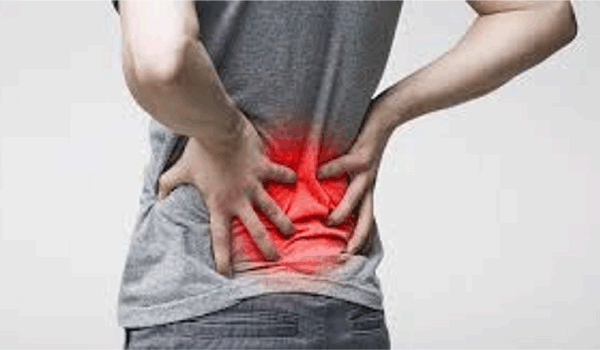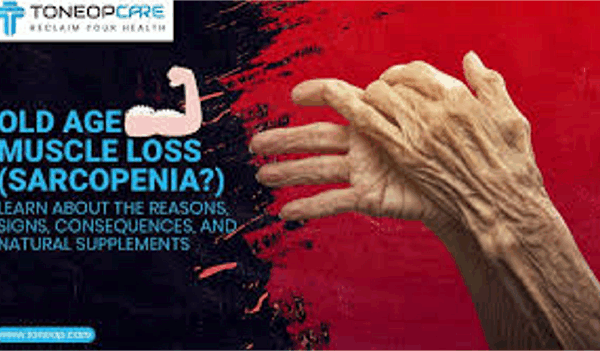부모가 기기 전원을 뽑아 병원에 입원하는 공격적인 어린이들에게 디지털 디톡스 촉구
ABC Capricornia / 엘리 윌콕스와 제레미 존스 지음
21시간 전21시간 전에 게시됨, 19시간 전19시간 전에 업데이트됨
두 명의 어린 아이들이 화려한 잠옷을 입고 소파에 앉아 태블릿으로 만화를 보고 있습니다.
WHO의 국제 질병 분류에서는 다른 활동보다 게임이 더 중요하다고 경고합니다.(Flickr: Wayan Vota; 라이센스)
간단히 말해서: 한 의사는 아이들이 장비를 빼앗길 때 분노에 휩싸인 후 응급실로 이송되고 있다고 말합니다.
게임 장애는 세계보건기구(WHO)가 인정한 문제이며 심리학자는 게임 장애가 불안과 우울증을 유발할 수도 있다고 말합니다.
다음 단계는 무엇일까요?부모님들은 아이들이 사교 활동이나 재미 등 기기를 통해 얻는 즐거움을 오프라인 세계로 더 많이 가져와 문제를 해결해야 한다는 촉구를 받아왔습니다.
응급실에서는 디지털 기기를 제거한 후 정신이 나간 아이들을 치료하고 있으며, 의사들은 부모들에게 중독 위험에 주의할 것을 촉구하고 있습니다.
Rockhampton에서 16년 동안 의료 책임자로 근무했으며 현재 Rockhampton 병원에서 근무하고 있는 Corne Esterhuysen은 디지털 중독이 어린이들에게 심각한 불안, 우울증, 자살 충동 및 ADHD 특성을 유발하고 있다고 말했습니다.
Esterhuysen 박사는 “이 효과는 코카인이나 헤로인과 비교됩니다. 이것이 뇌에 미치는 영향입니다”라고 말했습니다.
“구급차 경찰관이 집에 가서 아이들을 데려오는 것을 봅니다. 부모가 방금 아이패드에서 충전기를 떼어냈을 때 아이들은 정신이 나갔습니다.”
두 남자가 함께 서서 카메라를 향해 미소를 짓고 있다.
Corne Esterhuysen 박사와 작가 Brad Huddleston은 디지털 디톡스의 이점을 홍보하고 있습니다.(ABC Capricornia: Jasmine Hines)
이는 세계보건기구(WHO)가 2022년에 발표한 가장 최근의 국제질병분류(ICD)에서 인정한 문제입니다.
게임 장애는 다른 활동보다 게임을 우선시하는 정도가 일상 활동보다 우선시되고 계속해서 확대되는 “게임에 대한 통제력 장애”로 정의됩니다.
Esterhuysen 박사는 응급실에서 이러한 사건의 빈도가 지난 몇 년 동안 극적으로 증가했다고 말했습니다.
“우리는 부모들에게 물어보는 것 이상입니다. 우리는 그들에게 간청하고 있습니다. 장치를 내려놓으십시오.”라고 그는 말했습니다.
가족이 디지털 디톡스를 시도합니다
퀸즈랜드 중부의 어머니 에린 앨콘(Erin Alcorn)은 13세 아들이 학교 노트북을 받은 후 행동이 극도로 우려스러워졌다고 말했습니다.
“그는 새벽 3~4시에 일어나서 학교 노트북으로 YouTube를 시청하고 있었습니다.”라고 Alcorn 씨는 말했습니다.
“자녀가 학교에서 실패하고, 사회적으로 실패하고, 완전히 물러나고, 더 이상 살고 싶지 않다고 말하는 것보다 더 나쁜 것은 없습니다.”
보다
지속 시간: 2분 5초2분 5초
보기: ABC 건강 저널리스트가 화면 시간이 어린이의 두뇌 발달에 어떤 영향을 미칠 수 있는지 논의합니다.(ABC News)
Alcorn 가족은 십대의 나쁜 행동을 억제하기 위해 한 달 동안 디지털 해독을 하기로 약속했습니다.
“우리는 TV의 플러그를 뽑아 차고에 두었습니다. 집에 있는 인터넷 연결을 끊고 모든 장치를 제거했습니다.”라고 Alcorn 씨는 말했습니다.
“처음에는 [아이들이] 반항하고 화를 냈고, 우리는 세상에서 가장 나쁜 부모라는 말을 들었습니다.
“다시는 돌아오지 않을 것이라는 사실을 깨달은 후에 그들은 밤에 보드 게임을 즐기며 즐거운 시간을 보냈고, 학업이 향상되는 것을 보았습니다.”
부모가 조치를 취할 수 있습니다.
Rockhampton에 거주하는 임상 심리학자 Helen Madell은 어린이들이 종종 게임과 기술에 중독된 것처럼 보이지만 반드시 그런 것은 아니라고 말했습니다.
마델 씨는 “중독 행동처럼 보일 수 있지만 즐거움을 위해 하는 경우가 많다는 점에서 차이가 있다”고 말했다.
“아이들은 사교 활동, 음악, 관심사 탐구, 쇼핑을 위해 기술을 사용하고 있습니다.
“부모가 자녀를 기기에서 벗어나게 하고 싶다면 오프라인 영역에서 더 많은 즐거움을 누릴 수 있도록 해야 합니다.”
한 손에 쥐고 있는 iPhone이 홈 화면에 초점을 맞추고 있습니다.
보건당국은 디지털 중독이 어린이들에게 심각한 불안과 우울증을 유발할 수 있다고 밝혔습니다.(ABC Capricornia: Jasmine Hines)
이는 화면 시청 시간이 행동과 뇌에 미치는 영향을 연구하고 퀸즈랜드 학교를 순회하면서 디지털 중독의 위험성에 대해 경고하는 미국 작가 브래드 허들스턴(Brad Huddleston)이 반향한 메시지입니다.
허들스턴 씨는 “예전에 우리는 ‘가능한 한 가장 어린 나이에 아이들이 기기를 사용하도록 해야 하며, 모든 것이 디지털화될 것’이라고 말했는데, 거기에는 진실이 있습니다”라고 말했습니다.
“그러나 흡연과 마찬가지로 의도하지 않은 암의 결과는 수십 년 후에 발생했으며 이것이 바로 우리가 기술을 사용하는 위치입니다. 이 경우 정신 건강 문제입니다.”
마델 씨는 점점 더 많은 아이들이 불안과 우울감이 증가하고 기기를 빼앗겼을 때 공격성이 더 심해지는 것을 목격했다고 말했습니다.
“지금 동료 그룹이 있는 곳은 젊은이들을 위한 것입니다.”라고 그녀는 말했습니다.
“부모님이 해야 할 일
자녀가 온라인에 접속하는 이유를 이해하고 자녀가 온라인에 접속하는 이유에 대해 이야기하여 자녀가 온라인에 덜 겁을 먹을 수 있도록 하세요.”
그녀는 디지털 디톡스가 어린이뿐만 아니라 부모에게도 장점이 있다는 데 동의했습니다.
“사람들이 기기 때문에 주의가 산만해진다는 것을 우리는 알고 있기 때문에 디톡스는 나쁜 것이 아니라고 생각합니다.”라고 그녀는 말했습니다.
어린이를 위한 화면 시간에 대한 호주의 지침:
2세 미만 어린이에게는 화면 시간이 없습니다.
2~5세 어린이의 경우 하루에 한 시간 이하
5~17세 어린이의 경우 하루에 2시간 이하로 앉아서 여가 활동을 하는 화면 시간(학교 공부 제외)
출처: 호주 가족학 연구소
Rockhampton에 있는 Heights College의 Karen Bredenhann 교장은 1학년 정도의 어린 학생들이 기기를 빼앗긴 결과 공격적으로 행동하는 것을 본 적이 있다고 말했습니다.
그녀는 부모들이 디지털 디톡스를 시도해 볼 것을 지지했습니다.
Bredenhann 씨는 “기술의 남용이나 늦은 밤 감독되지 않은 기술의 사용과 연관될 수 있는 불안이 확실히 증가하고 있습니다”라고 말했습니다.
“우리는 2학년이나 1학년처럼 학교에 와야 할 때 전화를 끊었다는 이유로 매우 공격적인 학생들을 본 적이 있습니다.”
Esterhuysen 박사는 부모들에게 행동을 촉구했습니다.
“만약 당신이 당신의 아이들을 사랑한다면, 그들을 밖으로 내보내고 기기에서 꺼내십시오. 그러면 변화를 보게 될 것입니다”라고 그는 말했습니다.
ABC Capricornia — 받은편지함의 지역 뉴스
매주 금요일 무료로 배달되는 지역 뉴스레터를 받아보세요
귀하의 정보는 ABC 개인정보 수집 정책에 따라 처리됩니다.
이 사이트는 reCAPTCHA로 보호되며 Google 개인정보 보호정책 및 서비스 약관이 적용됩니다.
이메일 주소
osilbo07@gmail.com
구독하다
21시간 전 게시됨21시간 전, 19시간 전에 업데이트됨
Digital detox urged for children who are aggressive, hospitalised when parents pull plug on devices
/ By Ellie Willcox and Jeremy Jones
Posted 21h ago21 hours ago, updated 19h ago19 hours ago
abc.net.au/news/hospitalised-aggressive-children-urged-to-digital-detox/104056528Copy link
Link copiedShare article
In short:
A doctor says children are being taken to emergency departments after having angry meltdowns when their devices are taken away.
Gaming disorder is a problem recognised by the World Health Organization and a psychologist says it can also lead to anxiety and depression.
What’s next?
Parents have been urged to tackle the problem by bringing more of the pleasure kids get from devices — like socialising and fun — into their offline worlds.
Emergency departments are treating distraught children who are “off their minds” after having their digital devices removed with doctors urging parents to beware of the risk of addiction.
Corne Esterhuysen, a senior medical officer in Rockhampton for 16 years and now working at Rockhampton Hospital, said digital addiction was causing serious anxiety, depression, suicidal thoughts, and ADHD traits in children.
“The effect is compared to cocaine and heroin — that’s the effect that it has on the brain,” Dr Esterhuysen said.
“We see ambulance officers go out to houses and bring kids in where parents just took their chargers off their iPad, and they come in off their minds.”
It is a problem recognised by the World Health Organization in its most recent International Classification of Diseases (ICD), released in 2022.
Gaming disorder is defined as “impaired control over gaming” where the prioritisation of gaming over other activities is to the extent it takes precedence over daily activities, and continues to escalate.
Dr Esterhuysen said the frequency of these incidents in the emergency room had dramatically increased in the past few years.
“We are beyond asking the parents. We are pleading with them — get them off the device,” he said.
Family tries digital detox
Central Queensland mother Erin Alcorn said her 13-year-old son’s behaviour became extremely concerning after he was issued a school laptop.
“He was getting up at three or four [in the morning] and using the school laptop to watch YouTube,” Ms Alcorn said.
“There’s nothing worse than having your child fail at school, failing socially, completely withdrawn, and talking about not wanting to live anymore.”
The Alcorn family committed to a month-long digital detox aiming to curb their teenager’s poor behaviour.
“We pulled the plug on the TV [and] put it in the garage. We disconnected the home internet, we removed all devices,” Ms Alcorn said.
“At first [the kids] rebelled, they were angry, and we got told we were the worst parents in the world.
“Once they realised it wasn’t coming back they got enjoyment from quality time, board games at night, and down the track we saw improvements in their schoolwork.”
Parents can take action
Rockhampton-based clinical psychologist Helen Madell said while children often appeared addicted to games and technology this was not necessarily the case.
“It can look like addiction behaviour, but the difference is often they are doing it for pleasure,” Ms Madell said.
“Kids are using technology for socialising, music, exploring of interests, and shopping.
“If parents want to get their children off devices they need to bring more of that pleasure into the offline sphere.”
It is a message echoed by American author Brad Huddleston who has been studying the impacts of screen time on behaviours and the brain and is touring Queensland schools warning about the dangers of digital addiction.
“Back in my day we were saying, ‘You’ve got to get kids on devices at the earliest age possible, everything is going to go digital’, and there’s truth in that,” Mr Huddleston said.
“But then, sort of like smoking, the unintended consequences of cancer came about after a few decades and that’s exactly where we are at with technology. In this case, it’s mental health issues.”
Ms Madell said she had seen more and more children with increased levels of anxiety and depression, and more aggression when devices were taken away.
“For young people that is where their peer group is now,” she said.
“Parents need to understand why their kids are going online and talk to their children about why they’re online so they can be less intimidated by it.”
She agreed there was merit in digital detox for children, but also for parents.
“I think a detox is not a bad thing because we do know people are very distracted by devices,” she said.
Australia’s guidelines on screen time for kids:
- no screen time for children younger than two years
- no more than one hour per day for children aged two to five years
- no more than two hours of sedentary recreational screen time per day for five- to 17-year-olds (not including schoolwork)
Source: The Australian Institute of Family Studies
The principal at Heights College in Rockhampton, Karen Bredenhann, said she had seen students as young as year 1 acting aggressively as a result of devices being taken away from them.
She backed calls for parents to try a digital detox.
“There’s definitely an increase in anxiety that could be possibly linked to the overuse of technology or unsupervised use of technology late at night,” Ms Bredenhann said.
“We’ve seen some real aggressive students, even as low as year 2 and year 1 because the phone was taken off them when they had to come to school.”
Dr Esterhuysen urged parents to act.
“If you love your kids, I plead with you to get them outside, get them off the devices, and you’ll see the difference,” he said.
ABC Capricornia — local news in your inbox
Get our local newsletter, delivered free each Friday
Your information is being handled in accordance with the ABC Privacy Collection Statement.
This site is protected by reCAPTCHA and the Google Privacy Policy and Terms of Service apply.
Posted 21h ago21 hours ago, updated 19h ago










